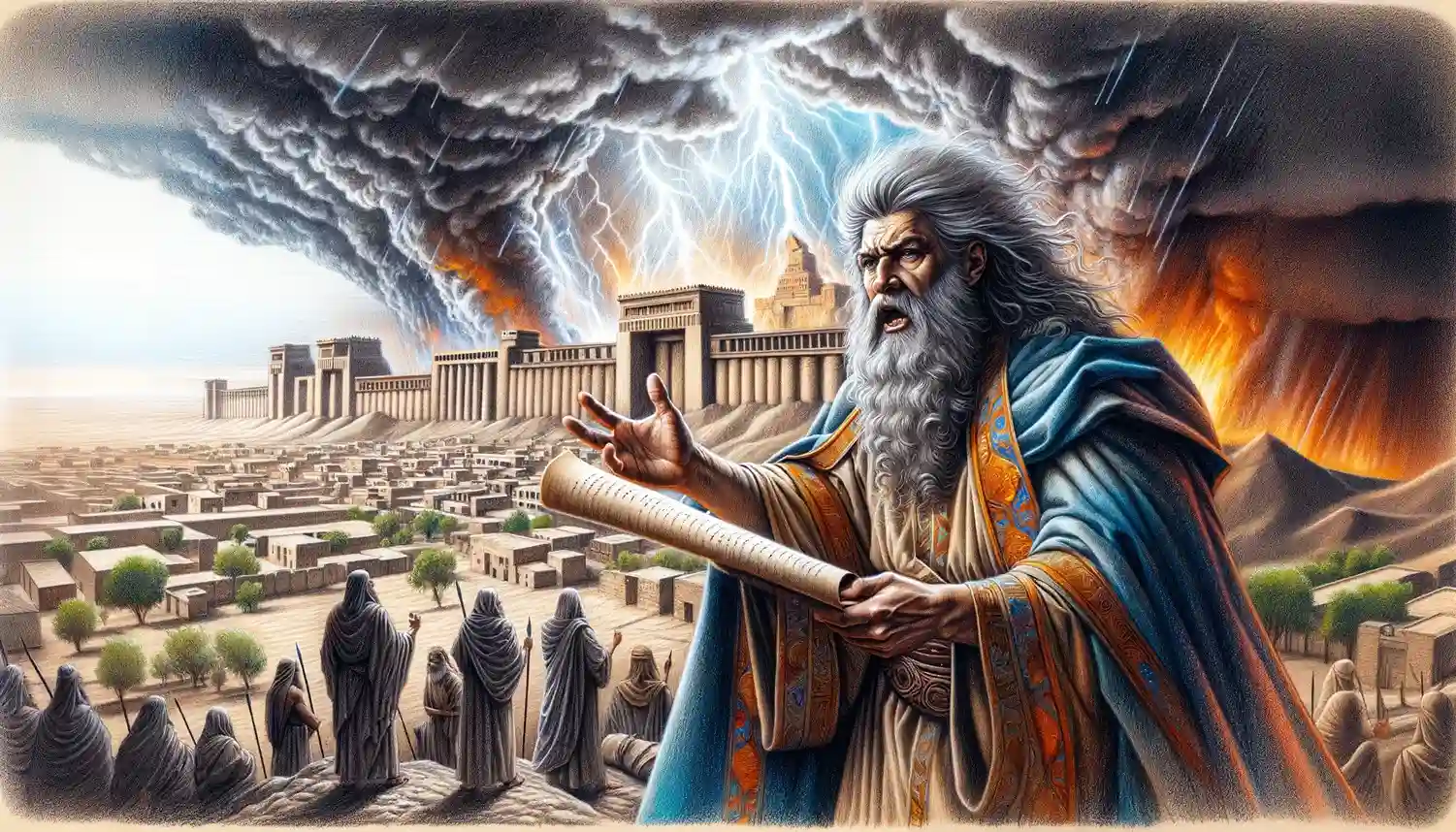
Nahum: Prophet who Prophesied the Fall of Nineveh
Introduction
Nahum, a prophet in the Hebrew Bible, is known for his prophecy concerning the fall of Nineveh, the capital of the Assyrian Empire. His message highlights themes of divine justice and the inevitable downfall of oppressive powers.
Quick Facts
- Prophet of Divine Justice: Nahum’s central message is the impending judgment and fall of Nineveh.
- Name Meaning: Nahum means “comfort” or “consolation” in Hebrew.
- Historical Context: His prophecies were delivered around the mid-7th century B.C., shortly before the fall of Nineveh in 612 B.C.
- Location: Nahum was likely from Elkosh, though the exact location is uncertain.
- Book of Nahum: His prophecies are recorded in the Book of Nahum, which consists of three chapters.
- Destruction of Nineveh: He vividly describes the destruction of Nineveh, using powerful and poetic imagery.
- Divine Vengeance: Nahum emphasizes that the fall of Nineveh is an act of divine vengeance against its cruelty and wickedness.
- Message to Judah: His prophecy also serves as a message of hope and comfort to Judah, assuring them of God’s justice.
Historical and Cultural Context
Nahum’s prophecy is set against the backdrop of Assyrian dominance in the ancient Near East. The Assyrian Empire, known for its military might and brutal conquests, had subjugated many nations, including Israel and Judah. Nineveh, its capital, was a symbol of Assyrian power and cruelty. Nahum’s prophecies came at a time when the Assyrian Empire was beginning to weaken, providing a timely message of impending divine judgment.
Prophet of Divine Justice
Nahum’s name, meaning “comfort” or “consolation,” reflects the dual nature of his message. While his prophecy spells doom for Nineveh, it also brings comfort to those who had suffered under Assyrian oppression. Nahum portrays God as a divine warrior who avenges the wrongs done to His people, emphasizing that no empire, regardless of its power, can escape divine justice (Nahum 1:2-3).
Vivid Imagery and Poetic Language
The Book of Nahum is noted for its vivid and poetic descriptions of Nineveh’s downfall. Nahum uses powerful imagery to depict the city’s destruction, including scenes of chariots racing through the streets, buildings collapsing, and the city being engulfed by floodwaters (Nahum 2:3-6, 3:1-3). His language conveys the totality of Nineveh’s defeat and the certainty of divine judgment.
Divine Vengeance and Justice
Central to Nahum’s message is the concept of divine vengeance. He asserts that Nineveh’s fall is not merely a political event but an act of divine retribution for the city’s sins, particularly its cruelty and idolatry. Nahum emphasizes that God is slow to anger but will not leave the guilty unpunished (Nahum 1:3). This serves as a reminder of God’s justice and the inevitability of His judgment against wickedness.
Message of Hope to Judah
For the people of Judah, Nahum’s prophecy provided a message of hope and reassurance. It affirmed that their suffering under Assyrian oppression would not go unpunished and that God would ultimately deliver them from their enemies. Nahum’s declaration that “the Lord is good, a refuge in times of trouble” (Nahum 1:7) offered comfort and strength to a beleaguered people.
Theological Themes
- Divine Justice and Vengeance: Nahum’s prophecies highlight the certainty of divine justice and the assurance that God will avenge the wrongs done to His people.
- Inevitability of Judgment: The fall of Nineveh serves as a powerful reminder that no empire or power can stand against God’s will.
- Hope and Comfort: Despite the focus on judgment, Nahum’s message also provides hope and comfort to the oppressed, assuring them of God’s protection and deliverance.
Legacy and Impact
Nahum’s prophecy of Nineveh’s fall was fulfilled in 612 B.C. when the city was conquered by the Babylonians and Medes. His vivid portrayal of Nineveh’s destruction has had a lasting impact on biblical literature and theology, emphasizing the themes of divine justice and the downfall of oppressive powers. Nahum’s message continues to resonate as a testament to God’s sovereignty and the ultimate triumph of justice.
Conclusion
Nahum, the prophet who foretold the fall of Nineveh, delivered a powerful message of divine justice and the inevitable downfall of oppressive powers. His vivid and poetic prophecies offer both a warning to the wicked and a message of hope and comfort to the oppressed, affirming the certainty of God’s justice and deliverance.



